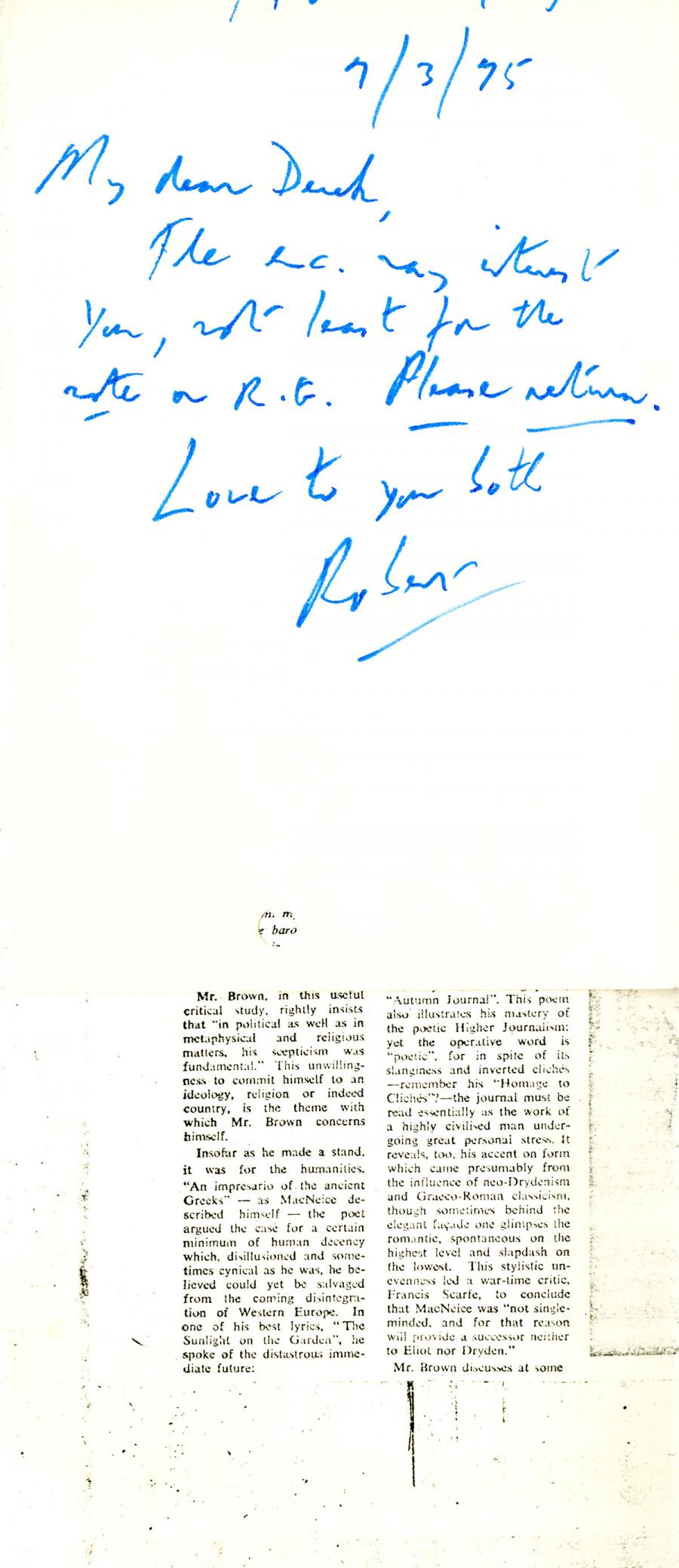7/3/75 My dear Derek, The inc.
may interest you, not least for the
note on R.G. Please return
Love to you both Robert
Mr. Brown, in this useful
critical study, rightly insists
that “'in political as well as in
metaphysical and religious
matters, his scepticism was
fundamental.” This unwilling-
ness to commit himself to an
ideology, religion or indeed
country, is the theme with
which Mr. Brown concerns
himself.
Insofar as he made a stand,
it was for the humanities.
“An impresario of the ancient
Greeks" — as MacNeice de-
scribed himself — the poet
argued the case for a certain
minimum of human decency
which, disillusioned and some-
times cynical as he was, he be-
lieved could yet be salvaged
from the coming disintegra-
tion of Western Europe. In
one of his best lyrics, “The
Sunlight on the Garden", he
spoke of the disastrous imme-
diate future:
“Autumn Journal”. This poem
also illustrates his mastery of
the poetic Higher Journaiom:
yet the operative word is
“poetic", for in spite of its
slanginess and inverted cliches
—remember his “Homage to
Cliches"?—the journal must be
read essentially as the work of
a highly civilised man under-
going great personal stress It
reveals, too, his accent on form
which came presumably from
the influence of neo-Drydenism
and Graeco-Roman classicism,
though sometimes behind the
elegant facade one glimpses the
romantic, spontaneous on the
highest level and slapdash on
the lowest. This stylistic un-
evenness led a war-time critic,
Francis Scarfe, to conclude
that MacNeice was "not single-
minded, and for that reason
will provide a successor neither
to Eliot nor Dryden.”
Mr. Brown discusses at some














